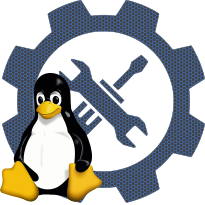Kernel support for ELF binaries
modulename: binfmt_elf.ko
and/orelfcore.ko
configname: CONFIG_BINFMT_ELF
Linux Kernel Configuration
└─>Kernel support for ELF binaries
In linux kernel since version 2.6.12
ELF (Executable and Linkable Format) is a format for libraries and
executables used across different architectures and operating
systems. Saying Y here will enable your kernel to run ELF binaries
and enlarge it by about 13 KB. ELF support under Linux has now all
but replaced the traditional Linux a.out formats (QMAGIC and ZMAGIC)
because it is portable (this does *not* mean that you will be able
to run executables from different architectures or operating systems
however) and makes building run-time libraries very easy. Many new
executables are distributed solely in ELF format. You definitely
want to say Y here.
Information about ELF is contained in the ELF HOWTO available from
<http://www.tldp.org/docs.html#howto>.
If you find that after upgrading from Linux kernel 1.2 and saying Y
here, you still can't run any ELF binaries (they just crash), then
you'll have to install the newest ELF runtime libraries, including
ld.so (check the file Documentation/Changes for location and
latest version).
executables used across different architectures and operating
systems. Saying Y here will enable your kernel to run ELF binaries
and enlarge it by about 13 KB. ELF support under Linux has now all
but replaced the traditional Linux a.out formats (QMAGIC and ZMAGIC)
because it is portable (this does *not* mean that you will be able
to run executables from different architectures or operating systems
however) and makes building run-time libraries very easy. Many new
executables are distributed solely in ELF format. You definitely
want to say Y here.
Information about ELF is contained in the ELF HOWTO available from
<http://www.tldp.org/docs.html#howto>.
If you find that after upgrading from Linux kernel 1.2 and saying Y
here, you still can't run any ELF binaries (they just crash), then
you'll have to install the newest ELF runtime libraries, including
ld.so (check the file Documentation/Changes for location and
latest version).
